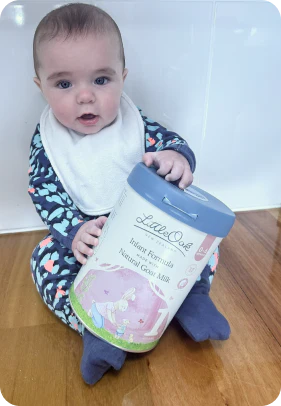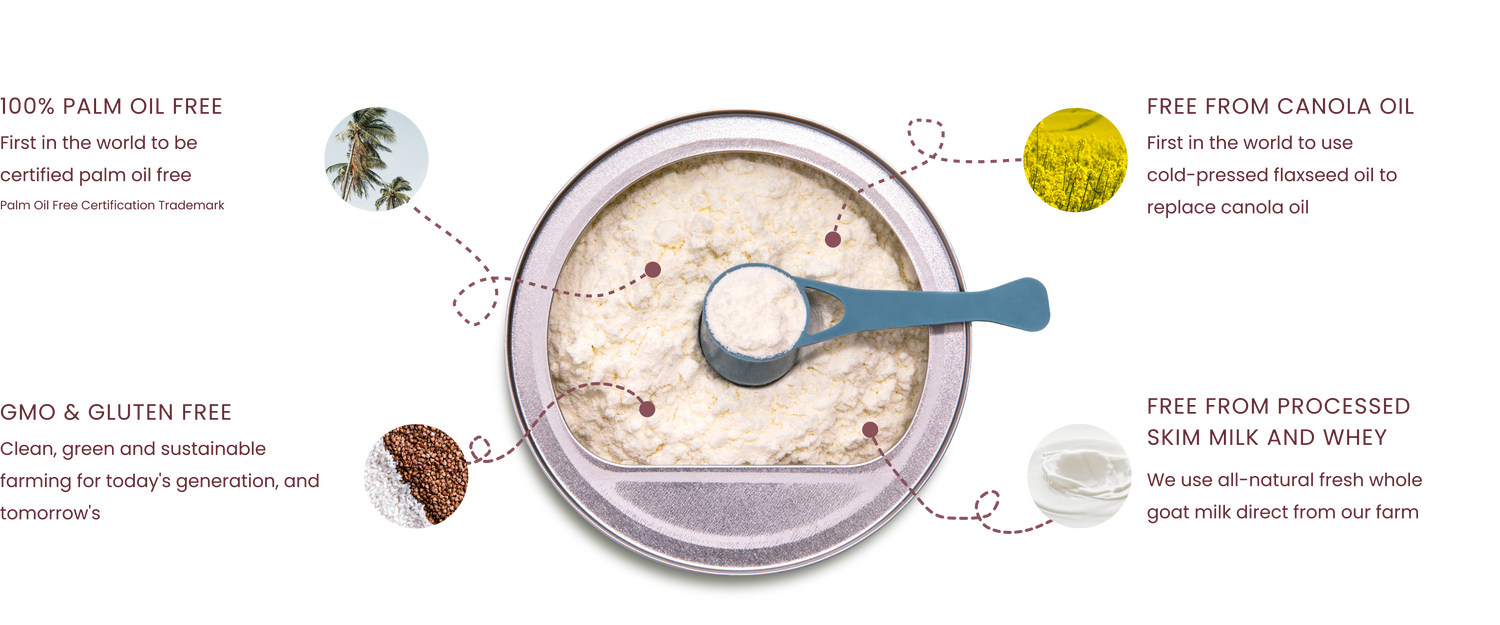Meet Kelsey Biffert, certified nutritionist and Founder of Modern Munch Nutrition. Today, Kelsey shares her own feeding journey, along with expert insights into toddler nutrition and the important role toddler milk can play in a well-balanced diet - especially for those picky eaters. Read on for the full article, and be sure to visit Kelsey's website to learn more about her work
If you have been blessed with a toddler, you know the amazing moments can come with some challenging ones as well, many of which are centered around mealtime. Toddlers are unique in the sense that they are intuitive eaters by nature. This means the refusal of certain foods is inevitable, and this can be frustrating for parents. However, there are many ways you can encourage your toddler to remain confident, healthy eaters while getting the nutrients they require for growth and development.
Nutrient needs
A toddler's appetite is going to vary day to day, and that’s totally normal. The best way to look at their overall nutrition is by what they’ve consumed over a week. Offer your toddler a wide variety of nutrient dense foods from all food groups, as often as possible. This will keep them open to trying new foods and ensure a variety of nutrients and minerals being consumed.
It is important to remember toddlers experience rapid periods of growth, unlike adults. Staying on top of nutrient needs will help support their growth, development and overall wellness. Along with a well-balanced diet, toddler milk can help you feel at ease that your toddler is getting the nutrients they need.
Specifically, a toddler milk can offer all macronutrients (carbohydrates, protein, fat) as well as important micronutrients and minerals including but not limited to:
DHA: this nutrient is critical for normal development of sensory, perceptual, cognitive, and motor systems during the brain growth of toddlerhood.
Vitamins A,B,C,D: all essential for growth and development, along with supporting the immune system.
Iron: a nutrient that tends to fall short in toddler diets as protein consumption may be lacking and is needed for healthy blood flow.
Calcium: needed to help toddlers build strong bones, can be lacking in diet if toddlers aren’t consuming dairy.
Milk after 12 months
As your baby gets older, their nutrient needs will change, and you’re probably wondering when to introduce milk. Milk can be a beneficial part of a balanced toddler diet offering carbohydrates, fat, protein, and more. If you’re wondering how to choose milk, consider your toddler’s individual needs first (allergies, calories, etc.), and then compare your options.
Choosing toddler milk can help fill the potential nutritional gaps in your toddlers’ diet and relieve some of the stress you may be feeling around their nutrient needs.
Particularly, if you are looking for a milk that is boosted with essential vitamins and minerals to complement your toddlers’ dietary intake from whole foods, you’ll definitely want to try LittleOak Toddler Milk.
Why we love LittleOak Toddler Milk
As a nutrition specialist and mama of two toddler boys, I’ve tried my best to research and offer the best possible nutrition while navigating the toddler years. Although both of my boys were good eaters from the start, when switching to milk with my second baby after 12 months, I knew a natural goat milk would be the best option for him and his particular dietary needs. I was hoping for an option with boosted nutrients and calories, and LittleOak’s Toddler Milk was my top choice when it came to ingredients, processing and overall quality. We started by offering it in a straw cup at meals, along with bedtime, and he loved it. Now we use it in baking, smoothies and so much more, plus my boys both love my boosted chocolate milk recipe.
Want to give it a try? Find more information and order at now click here
























